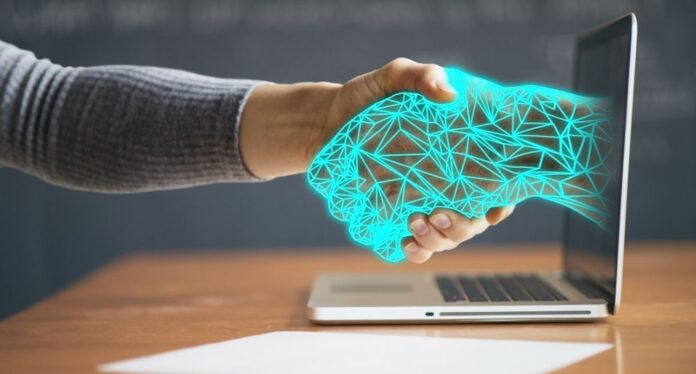
The topic of artificial intelligence is one of wonder, excitement, and anticipation. The world is inching closer and closer to automate every single aspect of our lives fully. Consider this. About a century back, if you told a person there would be a person living amongst you in a space called the cloud, who’d switch on the lights for you, play music for you, and would read your messages to you, they would’ve laughed at you straight up. No questions asked.
They would think you were a raving madman. We, as a human race, have come a long way. From the discovery of fire, the invention of the wheel, and the building of civilizations to now having intelligent software assist us in our day-to-day life is just wondrous. We’ve been growing at an exponential scale, with technological innovations booming every year. If you want to know more about AI in business, visit SYPWAI to learn more.
One of the most decisive impediments to progress can progress itself. It is almost paradoxical. If you didn’t understand what that meant, the more we progress, the more problems also arise. The balancing nature of all things is what kicks in.
Artificial intelligence is turning out to be more helpful day by day. Engineers are finding applications for artificial intelligence in many fields. Quantum computers enforce artificially intelligent software, which will change the face of software and many other areas. To see how AI impacts businesses, it is first vital to know what artificial intelligence means.
Artificial Intelligence
There’s a lot of buzz around AI now, and the term AI seems to be thrown around a lot these days. But what is it exactly? To clear things up, first of all, let’s look at the definition of artificial intelligence. To avoid confusion, we need to go to AI’s earliest and purest intent from the time it was first coined.
Jay McCartney first coined the official idea and definition of AI in 1955 at the Dartmouth conference. Of course, there was plenty of research done on AI by the famous Alan Turing before this. In simple words, artificial intelligence is a machine designed by humans capable of fully functioning by itself with an intelligent problem-solving pattern of its own, endowed by the natural intelligence of humans.
We’re sure you’ve used a computer, so here’s a more relatable scenario. What if your computer could do all your work for you? What if it could shop for your groceries based on your purchase patterns?
It would actively suggest what you’d want to buy and avoid items you wouldn’t buy once it understands and learns your preferences. This is artificial intelligence at its peak.
We haven’t gotten there yet, but as we said, the world is inching closer to this version of artificial intelligence, and this dream will become a reality soon. But for now, we have more impersonal yet fundamental problems to deal with. Our current level of artificial intelligence is doing an excellent job with—one of the best fields that we employ artificial intelligence currently in business.
Artificial Intelligence In Business
The introduction of the World Wide Web was a revolution in the field of computer dynamics. The web was designed to be a massive network of web pages, and currently, millions of businesses have their web pages.
This means that more and more businesses are going digital by the minute. Digitization has had its tremendous perks, but it also always comes with disadvantages. Companies’ common problems in the digital era are cyber fraud, transaction difficulties, consumer service, and targeted marketing.
These can be opportunities for businesses to solve them or threats if they do not deal with them right. There is only so much that a human brain can deal with at a time. We’ve been innovative enough to get machines to do our jobs for us and will increasingly end up doing so.
Another problem of today’s business era is the increasingly growing complexity in consumer preferences, which can be hard to track and analyze due to the sheer number of consumers.
Instead, we have created software systems that can try and understand consumer preference patterns and help businesses act accordingly. To be more specific, let’s start with the following business problem that AI can solve.
● Security In Banking and Business
Although these two are two different sectors, both work towards one single benefit, which is money. Businesses have enormous amounts of cash flow that banks have to manage.
Cyber fraud is increasing day by day due to the increasing knowledge of coding and how to bypass security systems. With artificial intelligence in the mix, AI rapidly finds breaches in the firewall and notifies the cybercrime branches in charge of prosecuting the wrongdoers. This way, your money stays safe, and the business can continue to boom.
● Understanding consumer preferences
Understanding the needs and wants of a consumer is most important for a business. This is because a company can boom only if there is a continuous demand for your products. A constant demand and supply network can be achieved only if you know and understand your consumer’s preferences.
A suitable example of this is Netflix. As soon as you finish watching a movie or a show, it begins to show you similar content for you to watch. Or have you ever wondered how you find an advert on Instagram that you just searched on google for a while back?
The current AI pattern does an adequate job of carefully observing your patterns of purchase and preference. Although considered a potential breach of privacy, it would help if you employed AI software to understand your own customers’ preferences to help them out better.
● Consumer service and grievances
With increasing businesses and products, the consumer base will only get more extensive. Like all things, service can never be perfect as there will be a mistake made in the entire process of exacting a transaction. A problem that a consumer faces is known as a grievance.
Arktan.com provides you the best AI software that uses automated voices to walk you through your problem on call and then put you through to an executive that will help you. In the future, though, there might even be no need for a human executive, and the consumer service sector might be fully automated.








